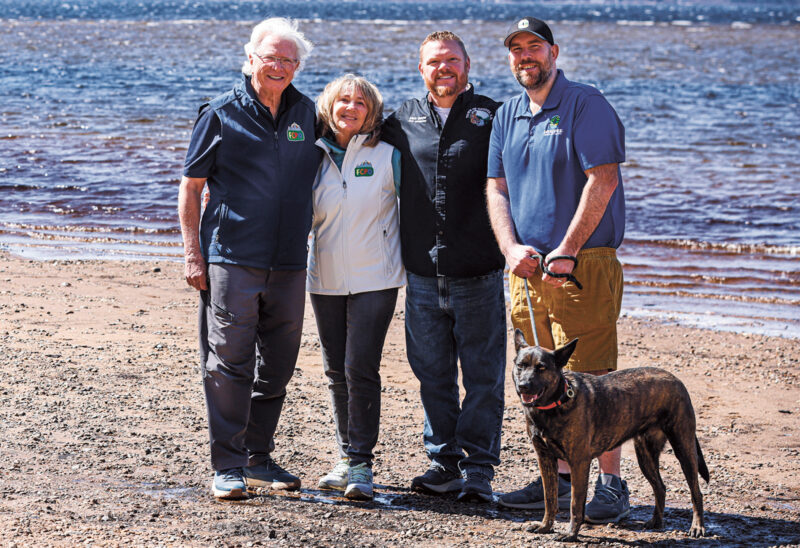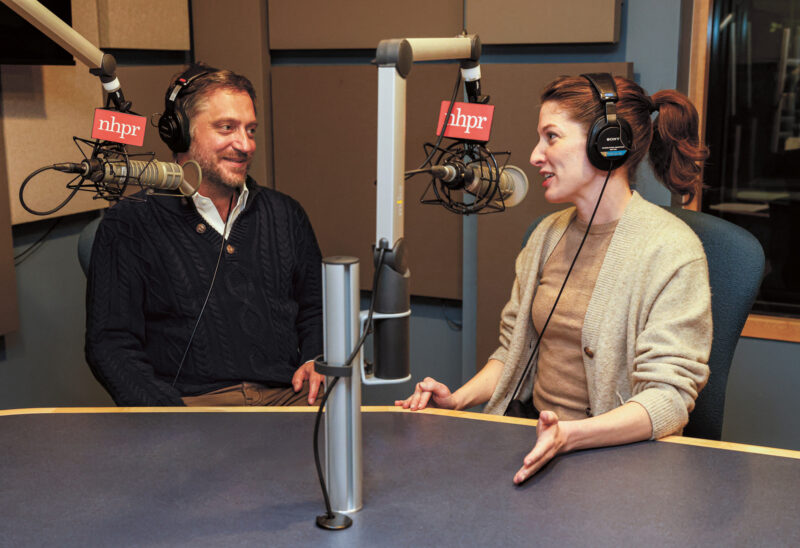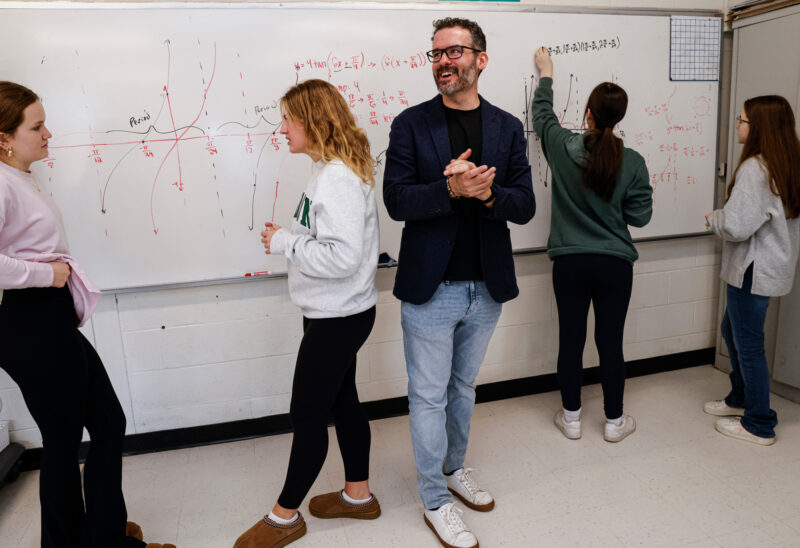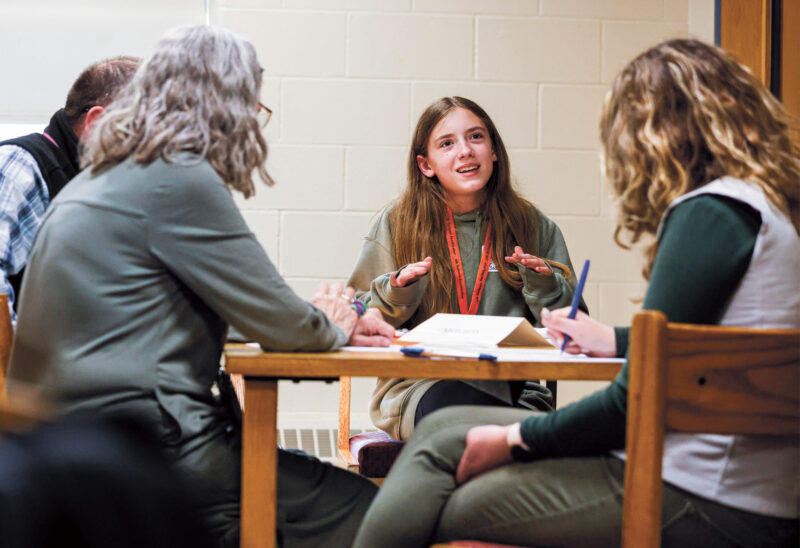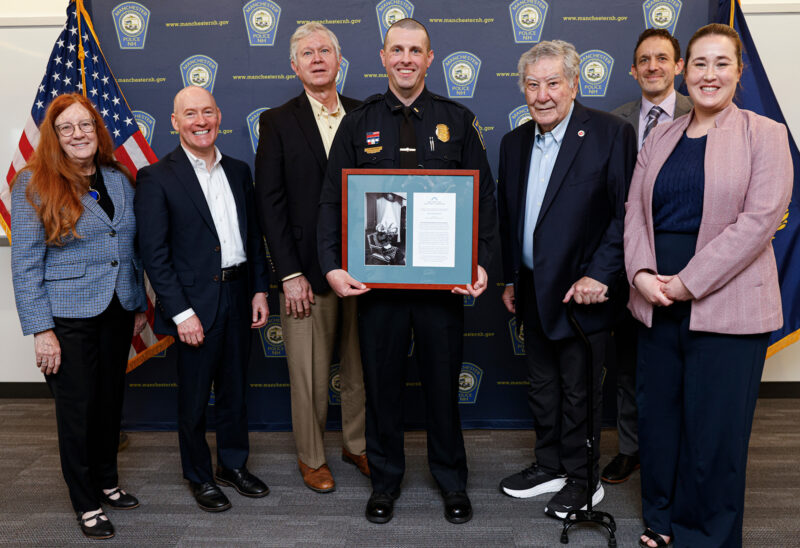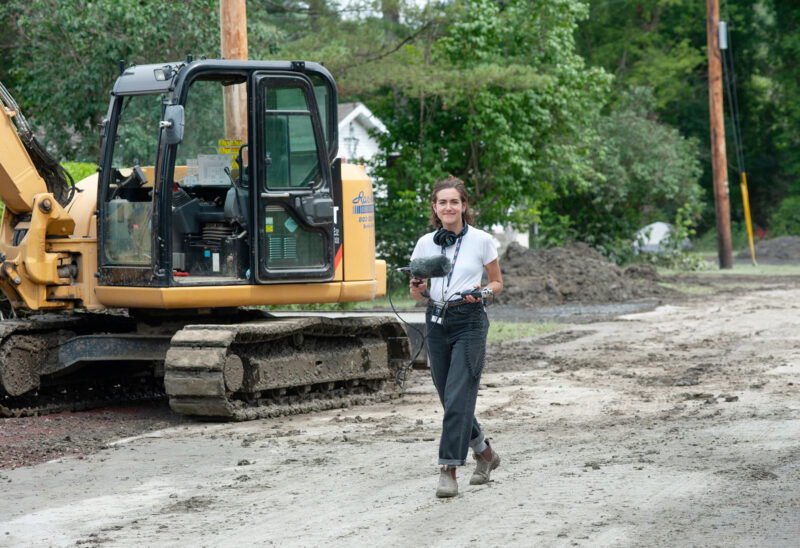When Rob Larson came on board as Whitefield’s Public Works Director in the spring of 2019, he was hoping to make some changes that would increase energy-efficiency in town — and save residents a few dollars on their tax bills. But with a fleet of vehicles to maintain, roads to look after, and all the other tasks that come with his job, there was little time to devote to energy projects.
Luckily for Larson, and for the taxpayers of Whitefield and other northern New Hampshire communities, another person was stepping into another new role at about the same time. Melissa Elander was hired in April to serve as the “energy circuit rider” in the North Country, part of a pilot program of Clean Energy NH that is being funded through a three-year grant from the Neil and Louise Tillotson Fund of the New Hampshire Charitable Foundation.
The Energy Circuit Rider program is part of a two-pronged approach aimed at building demand for energy-efficiency in the region. The idea is that if more towns — and homeowners and businesses — look to implement energy-efficiency measures, the demand will help create sustainable jobs in related sectors.
“These projects are saving money and reducing carbon footprints,” said Phoebe Backler, a senior program officer for the Tillotson Fund. “And municipal leaders also recognize that people who are considering moving to the region see this as a selling point — people want to live in places that are paying attention to these issues and taking steps toward a more sustainable energy future.”
The grant is in support of the Tillotson Fund’s economic development strategy of supporting two industries with significant potential for growth: Energy-efficiency and non-motorized outdoor recreation (from hunting and fishing to hiking, biking and skiing).
One of the first challenges of identifying, implementing, and funding energy-efficiency projects in towns and schools is having someone with the time and technical expertise to focus on the task. That’s where Elander comes in.
“I consider myself to be working for a town as an unpaid staff member with a focus on energy-efficiency,” said Elander, who has a background as an energy auditor and weatherization project manager.
Elander’s first task as energy circuit rider was to connect with leaders in Coös County towns and schools. Some had already started down the road of increasing energy-efficiency by scheduling lighting audits or looking into solar initiatives. Others, like Larson, had projects they wanted to explore, but no one on the payroll with the time to dedicate to researching possibilities.
When town administrators, school superintendents, and public-works directors already have their plates full, Elander has the time to reach out to energy providers and wade through the information about what energy-efficiency programs the utility offers, how to begin a process like converting to LED lighting, and how to contract with an auditor and apply for reimbursement for energy-efficiency projects.
Elander is working on projects in Berlin, Colebrook, Columbia, Gorham, Jefferson, Milan, Pittsburg, and Randolph, as well as with School Administrative Unit 20 in Gorham, and in the town of Bethlehem and in SAU 35 in Bethlehem.
“One of the things we look at doing in every single town is upgrading to LED lighting,” Elander said. “That’s really the low-hanging fruit.”
That low-hanging fruit, however, comes with tangible cost savings. The recent lighting audit of the Whitefield Fire Station indicates that switching to LED lights would result in an annual cost savings of just over $785. With Eversource covering half the $6,317 expense of making the switch — a cost that includes retrofitting the existing fluorescent fixtures, ballasts and bulbs with an LED system — the change would pay for itself in four years. And beyond the cost savings, the change would reduce carbon dioxide and other harmful emissions.
While Eversource will pay for energy and lighting audits and often covers a portion of the cost for implementing energy-efficiency projects, connecting the dots between wanting to do something, figuring out where improvements could be made, and making it all happen can be tricky.
“We know where the resources are, and we can connect cities and towns with these resources,” said Henry Herndon, director of local energy solutions for Clean Energy NH.
Larson had the idea to add electric-vehicle charging stations to downtown Whitefield. He figured it would be a good way to encourage people to stop in Whitefield, rather than just passing through. If they pause for a while to charge their cars, he thought, maybe they’d look for a place to buy a cup of coffee, have lunch, or do some shopping. And maybe that demand would encourage new business growth.
But Larson doesn’t have the time to figure out the logistics of locating and paying for charging stations.
“Melissa took off with that and made all kinds of connections,” he said.
Elander is looking into funding EV charging stations through a grant funded through the Volkswagen settlement (a result of a federal complaint in 2016 that Volkswagen violated the Clean Air Act) or through a USDA Rural Development grant. She’s also pursuing a grant through the state’s Clean Diesel Program (also part of the Volkswagen settlement), to help cover a portion of the cost of replacing an old town dump truck with a new one with much lower emissions.
Larson, meanwhile, is considering suggestions for implementing energy-savings measures at the old town garage, the result of an energy audit Elander helped set up through Eversource. And he’s looking at bigger-picture energy-efficiency ideas, like a solar installation on town property and a potential move for the garage to a more efficient building.
He figures those changes will be good for the environment and good for the taxpayers of Whitefield. And he credits the energy circuit rider with helping to make it all happen.
“She’s been incredible,” Larson said of Elander. “That program has been a godsend for the whole North Country.”










